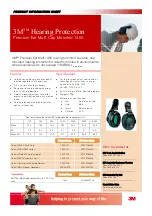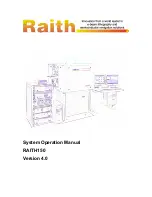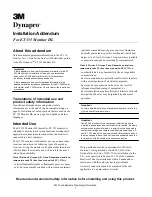
Chemical waste must not be added to distillate fuel. These materials can have the effects that
follow:
•
Can cause the fuel to become too thick and thus can cause a blockage of the filters
•
Can cause damage to fuel injection systems
•
Can cause a blockage of the fuel pump plungers or injectors.
12.11.5.14 Cloud point and cold filter plugging point
Before you get fuel, make sure that the pour point, the cloud point and the cold filter plugging point
(also known as cold flow characteristics) are correct for your ship’s design and voyage. There
could be problems with wax deposits in the storage tanks and in the separators, or with clogged
filters.
12.11.6
Bio-derived products and fatty acid methyl esters
Such components can be found in diesel engine fuels and can cause a decrease of greenhouse
gases and SO
x
emissions. Most bio-fuel components in the diesel fuel are Fatty Acid Methyl Esters
(FAME), which come from a special chemical treatment of natural plant oils. These components
are mandatory in automotive and agricultural diesel in some countries. FAME is specified in
ISO 14214 and ASTM D 6751.
FAME has good ignition properties and very good lubrication and environmental properties, but
FAME has also known negative properties as follows:
•
Possible oxidation and thus long term storage problems
•
A chemical attraction to water and nutrient for microbial growth
•
Unsatisfactory low temperature properties
•
FAME material particles can appear on exposed surfaces and filter elements.
If you use FAME as a fuel, make sure that the on-board storage, handling, treatment, service and
machinery systems can be used with such a product.
12.11.7
Ultra low sulphur fuel oils
Some fuel suppliers are selling ultra low sulphur fuel oils (ULSFO, sometimes also referred to as
hybrid fuels) as alternative to distillate fuels to obey the ECA rules.
Many of these products obey the specifications for residual fuel related to ISO 8217:2017, but they
are different to heavy fuel oil (HFO) in properties like sulphur content, compatibility, stability
viscosity, density and pour point. Use ULSFO as HFO related to storage, heating and separation.
The use of ULSFO is under the full responsibility of the operating company. WinGD recommends
to speak to the fuel supplier.
X52
AA00-0000-00AAA-030A-A
Operation Manual
Diesel engine fuels
Winterthur Gas & Diesel Ltd.
- 485 -
Issue 002 2018-11
















































